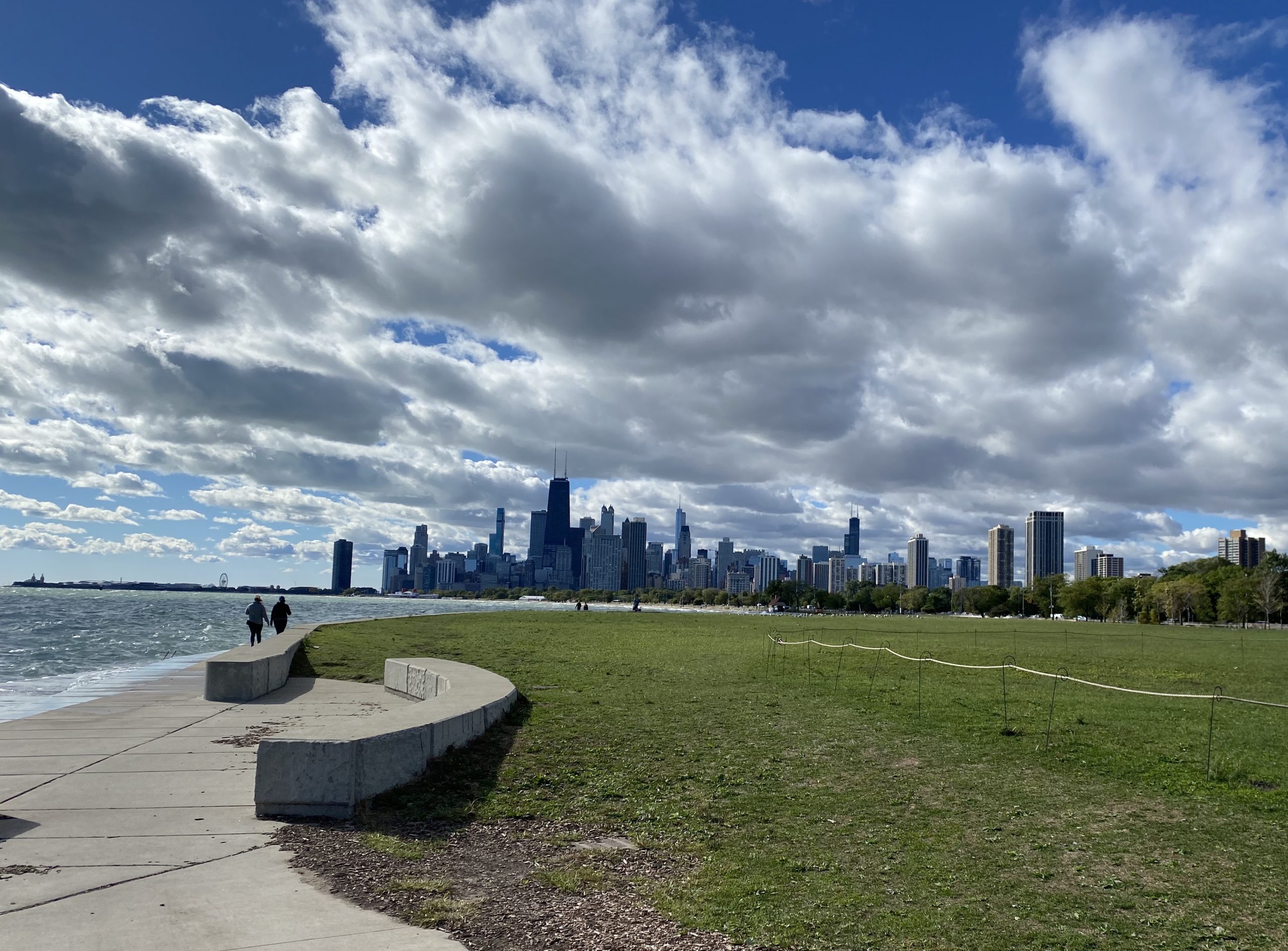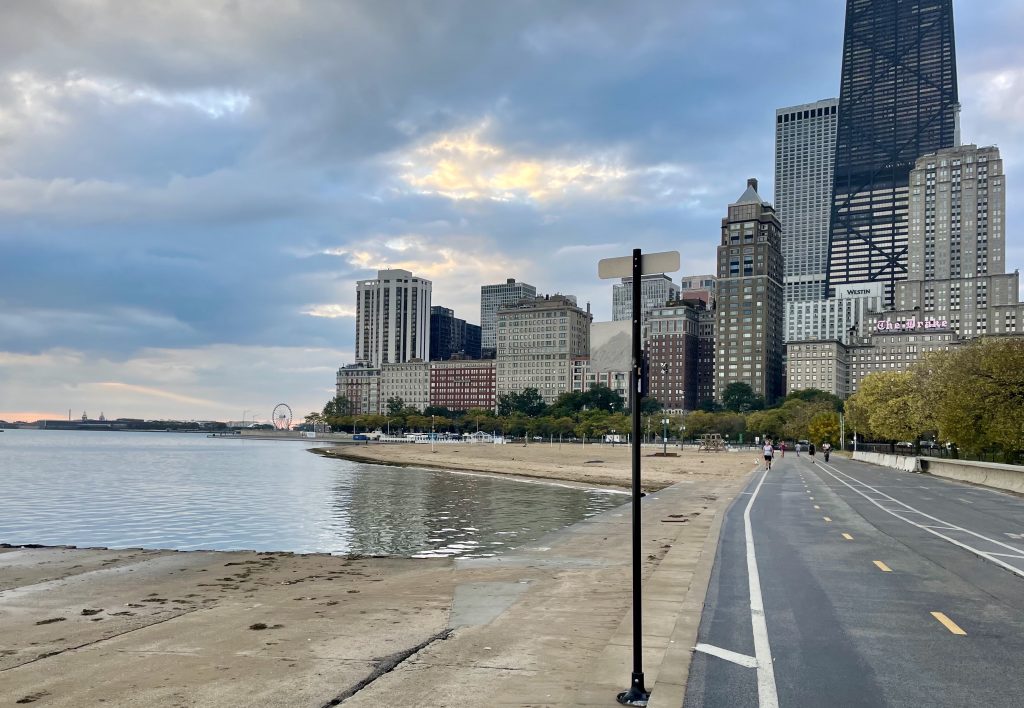
Chicago’s lakefront: A source of deep pleasure and rising unease
By Leah Sorini
Nov. 22, 2021
Whether it’s a muggy, July morning and the lake is dotted with boats and swimmers or a brisk November afternoon and leisurely walkers of all ages pass me by, their dogs gleefully leading the way, one of my favorite pastimes is walking along Chicago’s lakefront.
While lakefront congestion shifts with the time of day and season, the change in lake levels has increasingly drawn my focus. Some days I’m forced to the edge of the trail to avoid soaking my sneakers, while on other days I forgo the lake altogether because the waves overwhelm the entire path.
Getting thrown off balance
A 2020 video of a biker losing balance when a wave overtakes the lakefront trail is still fresh in my mind.
Fortunately, the biker was OK, but the vulnerability of a person on a bike against the forces of nature reminds me that this beautiful place where I go for relaxation and fresh air isn’t always safe.
The lake that provides Chicagoans with clean drinking water, a respite from the summer heat and postcard-worthy views has a darker side, exacerbated by the climate crisis.
High water levels not only make it dangerous for people on the lakefront trail, it also can lead to flooding, as was documented earlier this summer in the New York Times by Dan Egan, the author of the award-winning 2017 book, The Death and Life of the Great Lakes.
Devastating consequences
Most often, Lake Michigan is a welcoming sight in Chicago: patches of sand crowded with people, the lakefront trail far from the water. While the lake’s ups and downs have created minor shifts in my walking habits, I fear the long-term consequences on the surrounding infrastructure and our communities.
Lake Michigan’s lows endanger the city’s water supply and the area’s shipping capabilities, which is a huge part of the Midwest economy, said Drew Gronewold, an associate professor at the University of Michigan’s School for Environment and Sustainability in a recent CNBC article.
The swings between highs and lows in the lake’s water levels have become far more dramatic in recent years. Only eight years ago in 2013, Lake Michigan “plunged to a low not seen since record-keeping began in the mid-1800s,” Egan writes in the New York Times. By 2020, the lake hit a record summertime high. The lake level has shifted more than six feet in seven years.
What scares me is that we’re not prepared for this to become our “new normal.” How will the city keep the trail safe, protect homes and streets from the destruction of flooding and preserve our water system?
What will the future bring?
I used to think that Chicago would be a safe place to live compared to the West Coast, ravaged by fires, and the East Coast, facing dangerous storms and flooding. But with a better understanding of how climate change is affecting Lake Michigan, I’m no longer so sure.
As our fluctuating lake levels show, it’s clear that no city or community will be safe if changes aren’t made to mitigate our climate crisis. This means quickly reducing our greenhouse gas emissions in half by 2030 and to zero by 2050, to meet the goals set by the Paris Agreement and limit warming to 1.5° Celsius.
I’m in my mid-20s, and I worry that by time I’m 60, lake levels could get so high that entire neighborhoods, as well as the lakefront trail, could be destroyed. Or lake levels could fall so low that the Chicago River could reverse course and start flowing into the lake and compromise our water quality.
Or we do what is required and zero out emissions.
The uncertainty leaves a pit in my stomach. I’m worried about the city’s future and its residents. This is just one reason why Chicago and the nation must act quickly to address the climate crisis.
For Further Reading
The climate crisis haunts chicago’s future: A battle between a Great City and a Great Lake
Chicago is at risk as climate change causes wild swings in Lake Michigan water levels

Leah Sorini is a communications professional with experience in writing, project management, strategic planning, community engagement and public speaking. She is involved in the Chicago chapter’s communications work. She’s passionate about raising awareness to encourage action that addresses the climate crisis.



One Response
Thank you for bringing your voice to this important issue. Your blog and links will be helpful resources to those of us spreading the word about the impact of climate change. I too love the lakefront trail.